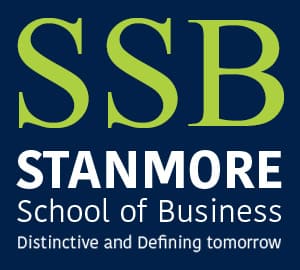Achieving Career Goals: The Benefits of Advanced Diploma in Logistics and Supply Chain Crisis Management in the UK
Published on June 28, 2025
About this Podcast
HOST: Welcome to our podcast, today I'm excited to be talking with an expert in the field of logistics and supply chain crisis management. Can you tell us a bit about your experience and why this topic is so important right now? GUEST: Absolutely, I've spent over 20 years working in logistics and supply chain management, and I can tell you that the ability to manage crises has never been more critical. With global supply chains becoming increasingly complex, companies are looking for professionals who can help them navigate potential crises. HOST: That's fascinating. Can you give us some examples of the types of crises you're referring to? GUEST: Sure, anything from natural disasters, political instability, cyber attacks, to even pandemics can disrupt supply chains. The goal is to be prepared and have a plan in place to minimize the impact of these disruptions. HOST: I see. And that's where the Advanced Diploma in Logistics and Supply Chain Crisis Management comes in. Can you tell us more about the course and what students can expect to learn? GUEST: Of course. The course covers a range of topics, including supply chain risk management, crisis planning, and logistics operations management. Students will learn how to identify potential crises, develop contingency plans, and manage logistics operations during a crisis. HOST: That sounds like a comprehensive program. Are there any current industry trends that are particularly relevant to the course? GUEST: Yes, there are a few trends that come to mind. First, the increasing use of technology in supply chain management, such as automation, AI, and blockchain. These technologies can help companies better manage their supply chains and respond to crises more quickly. Second, the growing importance of sustainability and social responsibility in supply chain management. Companies are looking for professionals who can help them reduce their environmental impact and promote ethical practices in their supply chains. HOST: Those are definitely important trends to consider. Now, what about challenges? Are there any common challenges that students might face when learning this subject or that professionals might encounter in the field? GUEST: One challenge is the complexity of supply chains. There are so many moving parts and variables to consider, it can be overwhelming for students. In the field, professionals need to be able to think on their feet and make quick decisions under pressure. HOST: That makes sense. Finally, what do you think the future holds for logistics and supply chain crisis management? GUEST: I think we'll continue to see a growing demand for professionals who can manage crises in supply chains. With the increasing complexity of global supply chains, companies will need to have a team of experts on hand to help them navigate potential disruptions. HOST: Well, thank you so much for joining us today and sharing your insights on the Advanced Diploma in Logistics and Supply Chain Crisis Management. It's been a pleasure having you on the show. GUEST: Thank you for having me. It's been a pleasure sharing my experiences and insights with your audience.
